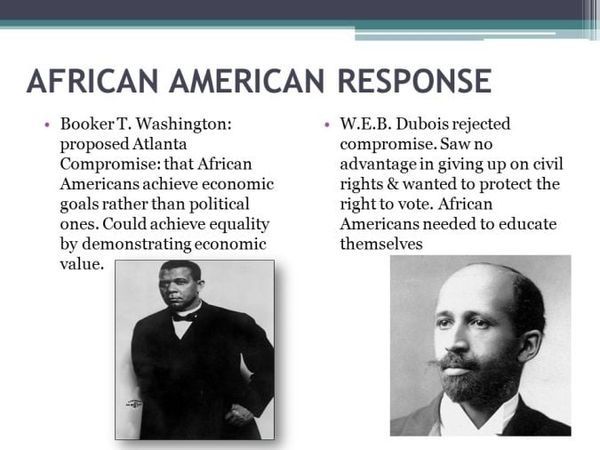GM – FBF – Today’s American Champion was The Cotton States and International Exposition Speech was an address on the topic of race relations given by Booker T. Washington on September 18, 1895. The speech laid the foundation for the Atlanta compromise, an agreement between African-American leaders and Southern white leaders in which Southern blacks would work meekly and submit to white political rule, while Southern whites guaranteed that blacks would receive basic education and due process of law.The speech, presented before a predominantly white audience at the Cotton States and International Exposition (the site of today’s Piedmont Park) in Atlanta, Georgia, has been recognized as one of the most important and influential speeches in American history. The speech was preceded by the reading of a dedicatory ode written by Frank Lebby Stanton. Washington began with a call to the blacks, who composed one third of the Southern population, to join the world of work. He declared that the South was where blacks were given their chance, as opposed to the North, especially in the worlds of commerce and industry. He told the white audience that rather than relying on the immigrant population arriving at the rate of a million people a year, they should hire some of the nation’s eight million blacks. He praised blacks’ loyalty, fidelity and love in service to the white population, but warned that they could be a great burden on society if oppression continued, stating that the progress of the South was inherently tied to the treatment of blacks and protection of their liberties.He addressed the inequality between commercial legality and social acceptance, proclaiming that “The opportunity to earn a dollar in a factory just now is worth infinitely more than the opportunity to spend a dollar in an opera house.” Washington also promoted segregation by claiming that blacks and whites could exist as separate fingers of a hand.The title “Atlanta Compromise” was given to the speech by W. E. B. Du Bois, who believed it was insufficiently committed to the pursuit of social and political equality for blacks.Although the speech was not recorded at its initial presentation in 1895, Washington recorded a portion of the speech during a trip to New York in 1908. This recording has been included in the United States National Recording Registry. Today in our History – September 18, 1895 – Booker T. Washington and W. E. B. Du Bois debate in Atlanta, Georgia.Atlanta Compromise, classic statement on race relations articulated by Booker T. Washington, a leading Black educator in the United States in the late 19th century. In a speech at the Cotton States and International Exposition in Atlanta, Georgia, on September 18, 1895, Washington asserted that vocational education, which gave African Americans an opportunity for economic security, was more valuable to them than social advantages, higher education, or political office.In one sentence he summarized his concept of race relations appropriate for the times: “In all things that are purely social we can be as separate as the fingers, yet one as the hand in all things essential to mutual progress.” In return for African Americans’ remaining peaceful and socially separate from whites, the white community needed to accept responsibility for improving the social and economic conditions of all Americans, regardless of skin colour, Washington argued. This notion of shared responsibilities is what came to be known as the Atlanta Compromise. Washington closed his address by saying:Nothing in thirty years has given us more hope and encouragement and drawn us so near to you of the white race as these opportunity offered by this Exposition, and here bending, as it were, over the altar that represents the results of the struggles of your race and mine, both starting practically empty handed three decades ago, I pledge that in your effort to work out the great and intricate problem which God has laid at the doors of the South, you shall have at all times the patient, sympathetic help of my race….Far above and beyond material benefit, will be that higher good, that let us pray God will come, in a blotting out of sectional differences and racial animosities and suspicions, and in a determination even in the remotest corner, to administer absolute justice, in a willing obedience among all classes to the mandates of law. This, this, coupled with our material prosperity, will bring into our beloved South new Heaven and new Earth.White leaders in both the North and the South greeted Washington’s speech with enthusiasm, but it disturbed Black intellectuals who feared that Washington’s “accommodations” philosophy would doom Blacks to indefinite subservience to whites.This criticism of the Atlanta Compromise was best articulated by W.E.B. Du Bois in The Souls of Black Folk (1903): “Mr. Washington represents in Negro thought the old attitude of adjustment and submission.…[His] programmer practically accepts the alleged inferiority of the Negro races.” Advocating full civil rights as an alternative to Washington’s policy of accommodation, Du Bois organized a faction of Black leaders into the Niagara Movement (1905), which led to the founding of the National Association for the Advancement of Colored People (1909). Research more about this historic event and share it with your babies. Make it a champion day!

